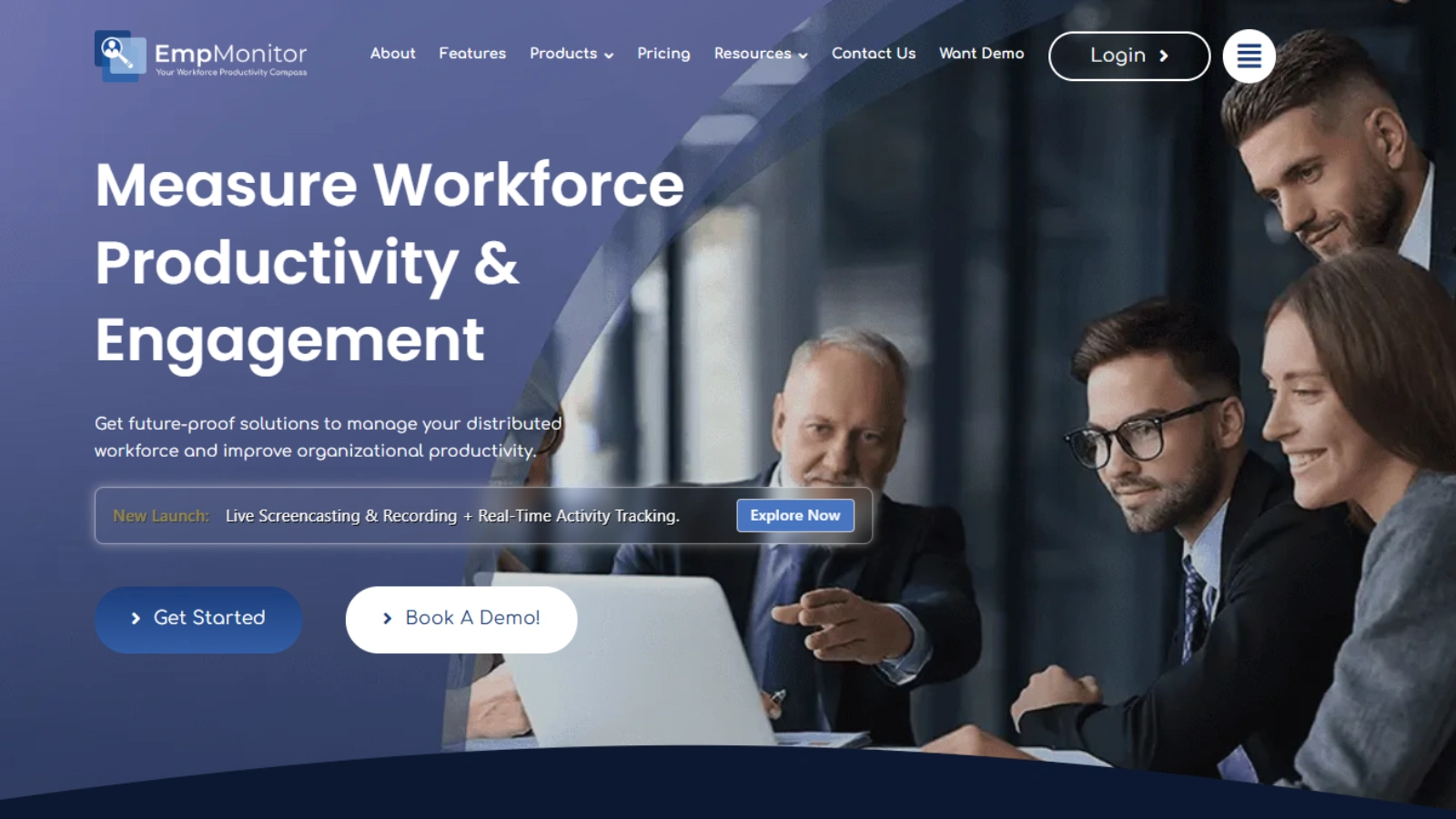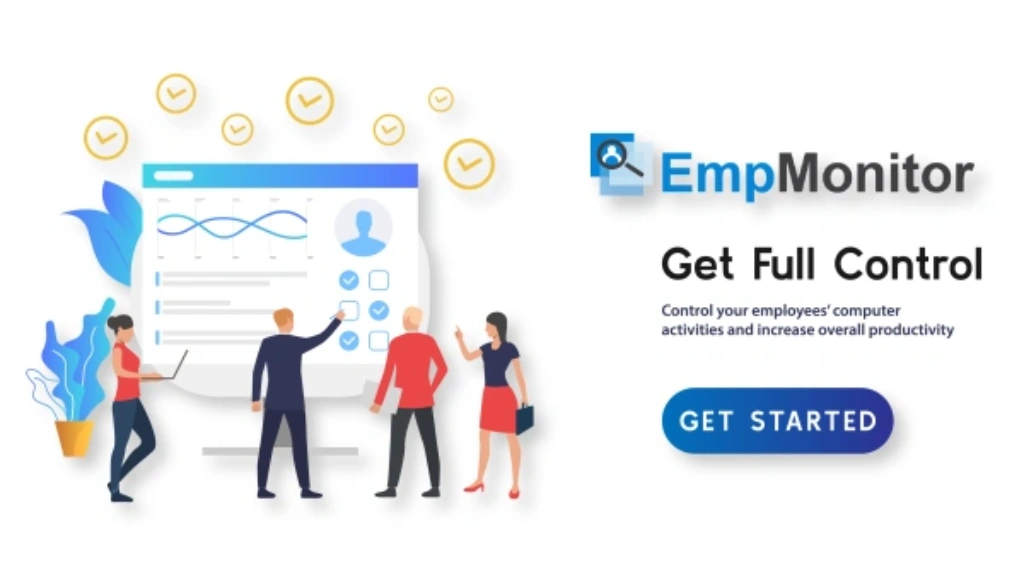Staying productive at work can often feel like a challenge. Between endless emails, meetings, and tasks, it’s easy to lose focus. However, focusing on productive things to do can help you maximize your efficiency, stay motivated, and make your workday more fulfilling. This guide explores actionable strategies, practical tips, and creative ideas to make the most out of your time at work.
Hit ‘Play’ Button & Tune Into The Blog!
Why Productivity Matters At Work?
Productivity isn’t just about doing more tasks; it’s about achieving meaningful results efficiently. Engaging in productive things to do allows you to:
- Meet deadlines with ease – Staying organized and prioritizing tasks ensures you complete projects on time without last-minute rushes.
- Reduce stress and prevent burnout – A balanced workload and efficient planning keep mental and physical strain in check.
- Create a sense of accomplishment – Completing important tasks gives you a boost of motivation and confidence to take on more challenges.
- Enhance career growth and recognition – Consistent, high-quality output positions you for promotions, raises, and leadership opportunities.
When you understand the true value of productivity, you shift from simply filling your schedule to focusing on the work that drives real progress.
How To Identify Productive Things To Do?
Before diving into specific activities, it’s essential to know what counts as productive. Productive activities are those that contribute to your personal or professional goals, improve skills, or enhance your work environment.
To identify productive things to do, ask yourself:
- Does this task help me achieve my goals?
- Will this activity improve my skills or knowledge?
- Does it have a long-term benefit for my career or team?
By evaluating tasks with these questions, you can prioritize work that truly matters and avoid distractions that waste time. If you’re unsure what to do to be productive, using these criteria will give you clarity and direction.
10 Productive Things To Do At Work
Here are ten actionable tips and effective productive things to do at work to maximize your day:
1. Plan Your Day In Advance:
One of the simplest yet most effective ways to stay productive is by planning your day. Start your morning by listing your top priorities. Use time-blocking techniques to allocate specific hours for each task. This practice ensures that you’re focused and prevents important tasks from being overlooked.
Planning your day also allows you to anticipate challenges and prepare solutions in advance, making your workflow smoother. Tools like calendars, planners, or digital task managers can enhance this habit significantly.
2. Organize Your Workspace:
A cluttered workspace can lead to a cluttered mind. Spend a few minutes tidying your desk, organizing files, and creating an environment conducive to focus.
When you organize your physical and digital workspace, you reduce distractions and save time searching for documents or tools. This simple activity is often overlooked but is one of the most effective productive things to do at work.
3. Respond To Important Emails Efficiently:
Email management can be a huge time drain if not handled properly. Instead of checking emails constantly, schedule specific times during the day to respond to them. Prioritize emails based on urgency and importance.
Batch-processing your emails not only improves productivity but also reduces mental fatigue caused by constant interruptions.
4. Learn A New Skill:
Professional growth is essential for staying relevant in any industry. Dedicate some time during your workday to learning a new skill related to your job. This could be mastering a software tool, improving communication, or learning industry trends.
Engaging in skill development is one of the most rewarding productive things to do, as it provides both immediate and long-term benefits for your career.
5. Take Short Breaks Strategically:
It might sound counterintuitive, but taking breaks can boost productivity. Use techniques like the Pomodoro method, where you work for 25 minutes and then take a 5-minute break.
Short breaks help refresh your mind, prevent burnout, and increase overall efficiency. Even a brief walk or stretching exercise can be a productive way to recharge.
If you prefer something low-effort that still resets your brain, playing a quick game, like a short game of Sudoku round, can be a great option too.
6. Review And Update Goals:
Spend time reviewing your weekly or monthly goals. Check your progress, adjust deadlines, and set new targets if necessary.
Goal reviews help you stay aligned with your priorities and ensure that the tasks you choose are genuinely impactful. This habit also creates a sense of accomplishment and motivation, making it one of the essential productive things to do during your workday.
7. Network And Build Relationships:
Building strong professional relationships is often overlooked in productivity discussions. Take time to engage with colleagues, attend virtual networking events, or connect with mentors.
Networking improves collaboration, opens doors to new opportunities, and enhances your work environment. It’s a productive activity that strengthens both personal and professional growth.
Also Read:
08 Tips To Improve Productivity In The Workplace
8. Declutter Your Digital Life:
Emails aren’t the only digital clutter that impacts productivity. Take some time to organize files, clear old documents, and delete unnecessary apps or software.
A well-organized digital workspace reduces stress and improves focus, making your daily tasks easier to manage. Digital decluttering is a modern but often neglected productive thing to do that can help increase employee productivity.
9. Reflect And Journal:
Reflecting on your day helps identify what worked well and what could be improved. Keep a small journal or digital note to track achievements, challenges, and lessons learned.
Journaling enhances self-awareness and supports continuous improvement. It also encourages you to celebrate wins, no matter how small, which boosts motivation and productivity.
10. Plan For Tomorrow:
End your workday by preparing for the next. Outline your top tasks, set deadlines, and arrange materials needed for a smooth start tomorrow.
This forward-thinking approach reduces stress in the morning and allows you to hit the ground running. Planning is a simple yet highly effective productive thing to do at work.
How To Feel Productive Every Day At Work?
Feeling productive isn’t just about finishing a long list of tasks; it’s about creating a work rhythm that keeps you engaged, focused, and satisfied with your efforts. That sense of accomplishment not only boosts morale but also drives long-term performance.
Whether you’re looking for productive things to do when bored or planning things to do to be productive during a busy day, these strategies and productive work habits can make a lasting difference:
Set achievable daily goals:
Start your day by defining 3–5 key tasks that are realistic within your available time. This prevents overloading your schedule and gives you a clear focus. When you complete them, you get an instant sense of achievement, even if other tasks are still pending.
Break larger tasks into smaller milestones:
Large projects can feel overwhelming if you only look at the end goal. Splitting them into smaller, manageable milestones allows you to track progress and stay motivated. For example, instead of “Finish report,” aim for “Complete research section” or “Write the first draft.”
Celebrate small wins:
Recognition isn’t just for big achievements. Acknowledging small successes, like sending an important email, finishing a meeting on time, or solving a tricky problem, gives you quick bursts of motivation. These moments accumulate, creating positive momentum for the rest of your day.
Reflect on completed work:
At the end of the day, take 5–10 minutes to review what you accomplished. This reflection helps you recognize the value of your work, learn from challenges, and set better priorities for tomorrow. It also reinforces a sense of control over your time and output.
By applying these steps, you can maintain steady progress, turn idle moments into opportunities for growth, and ensure that both your busy and slow days feel equally rewarding.
Also Read:
17 Productive Work Habits That Actually Stick (And How To Track Them In 2025)
Make Your Employees More Productive With Six Simple Tips!
How Can Productivity Tracking Software Transform Your Workday?
Modern technology provides tools that can significantly enhance efficiency. Using productivity tracking software allows you to:
- Monitor time spent on tasks
- Identify distractions and time-wasting activities
- Set reminders and deadlines
- Generate reports for self-assessment
Among the many productivity tools available, EmpMonitor stands out as a comprehensive workforce management and productivity tracking solution. It goes beyond simple time tracking by offering features like employee activity monitoring, attendance management, project tracking, and even insider threat prevention.
For teams aiming to adopt more productive things to do at work, EmpMonitor provides real-time data and context-rich reports to help identify what’s working, address inefficiencies, and keep employees engaged.
How Can EmpMonitor Help You Find And Manage The Most Productive Things To Do At Work?
If you’re looking for an all-in-one solution to manage and enhance workplace productivity, EmpMonitor offers a powerful set of tools that go far beyond basic tracking. Designed to help businesses implement more productive things to do daily, it enables managers to monitor, analyze, and optimize workflows with precision.
Key Features Of EmpMonitor:
1. Employee Monitoring Software:
Get detailed insights into team activity with context-rich reporting. This feature helps identify productivity patterns, track performance, and highlight areas that need improvement, ensuring every work hour counts.
2. Time Tracking:
Access real-time timesheets and analyze both productive and idle hours. This helps teams improve accountability, optimize schedules, and make sure time is being used effectively on high-priority tasks.
3. User Activity Monitoring:
Gain a clear picture of daily and hourly activity to ensure employees stay focused on high-value work. This feature helps minimize distractions and keeps the team aligned with company goals.
4. Attendance Monitoring:
Track attendance and manage leave records digitally, eliminating manual errors. Accurate attendance data supports better planning, project allocation, and overall productivity.
5. Workforce Productivity & Engagement:
Leverage analytics to assess workflow efficiency, spot bottlenecks, and foster a culture of engagement. This ensures your team remains motivated while consistently working on impactful tasks.
6. Project Management:
Easily assign, track, and manage tasks across teams. Detailed progress tracking helps meet deadlines, optimize resources, and keep projects aligned with business priorities.
With EmpMonitor, businesses can move from guesswork to data-driven decision-making, making it easier to identify the most productive things to do for both individuals and teams. Its centralized dashboard keeps everything, from monitoring to project management, streamlined for maximum efficiency.
How Can You Balance Productivity And Well-Being At Work?
Being productive doesn’t mean working from morning to night without pause. Overworking often leads to burnout, fatigue, and a drop in performance. To ensure your productivity is sustainable, make these habits part of your routine:
- Take regular breaks – Short pauses every 60–90 minutes help refresh your mind, prevent mental fatigue, and improve focus when you return to work.
- Maintain good posture and ergonomics – Use an ergonomic chair, adjust your screen height, and sit with your back straight to reduce strain on your neck and spine.
- Stay hydrated and eat well – Drinking enough water and eating balanced meals fuels your brain and body, keeping energy levels steady throughout the day.
- Keep personal time for hobbies and relaxation – Engaging in activities you enjoy outside of work reduces stress and recharges your creativity.
Balancing work output with self-care ensures you can perform at your best without sacrificing your health or happiness.
What Are The Most Common Productivity Pitfalls To Avoid?
Even with the best intentions, your efficiency can be undermined by habits that slow you down. Being aware of these pitfalls helps you stay focused on truly productive things to do and maintain steady progress:
Multitasking excessively:
Switching between tasks may feel productive, but it often leads to mistakes, slower completion times, and reduced quality of work. Focusing on one task at a time is usually more efficient.
Procrastinating on critical tasks:
Delaying important work often results in last-minute stress, rushed output, and missed opportunities. Tackling priority tasks early in the day can prevent this.
Overloading your schedule without prioritizing:
Filling your to-do list with too many tasks can leave you overwhelmed and unsure where to start. Prioritizing based on urgency and impact ensures you focus on what matters most.
Neglecting rest and breaks:
Working nonstop without pausing can lead to burnout and reduced concentration. Regular short breaks help maintain mental clarity and long-term productivity.
By identifying and addressing these pitfalls, you can create a more focused, realistic, and sustainable workflow that keeps you consistently productive.
Conclusion
Staying productive at work is a continuous journey that requires focus, discipline, and the right strategies. By adopting habits like planning your day, organizing your workspace, and taking intentional breaks, you can significantly boost your efficiency and overall satisfaction. With consistent effort, these small daily actions can compound into remarkable professional growth.
To further enhance your productivity, consider using EmpMonitor, a powerful productivity tracking software that helps you monitor work patterns, identify time-wasters, and stay on track with your goals. Combining such tools with regular goal reviews, skill learning, and reflection ensures you stay engaged, achieve more, and maintain a healthy work-life balance. Over time, these practices turn productivity into a natural and rewarding habit.
FAQs
1. Why Should You Avoid Multitasking?
Ans. Multitasking may seem efficient, but it divides your attention, slows progress, and increases the chance of mistakes.
2. How Does Procrastination Hurt Productivity?
Ans. Putting off important tasks builds up pressure, shortens the time to complete them, and often results in lower-quality work.
3. Why Is Skipping Breaks a Mistake?
Ans. Working without breaks strains your mind, reduces focus, and makes you more prone to burnout over time.
















